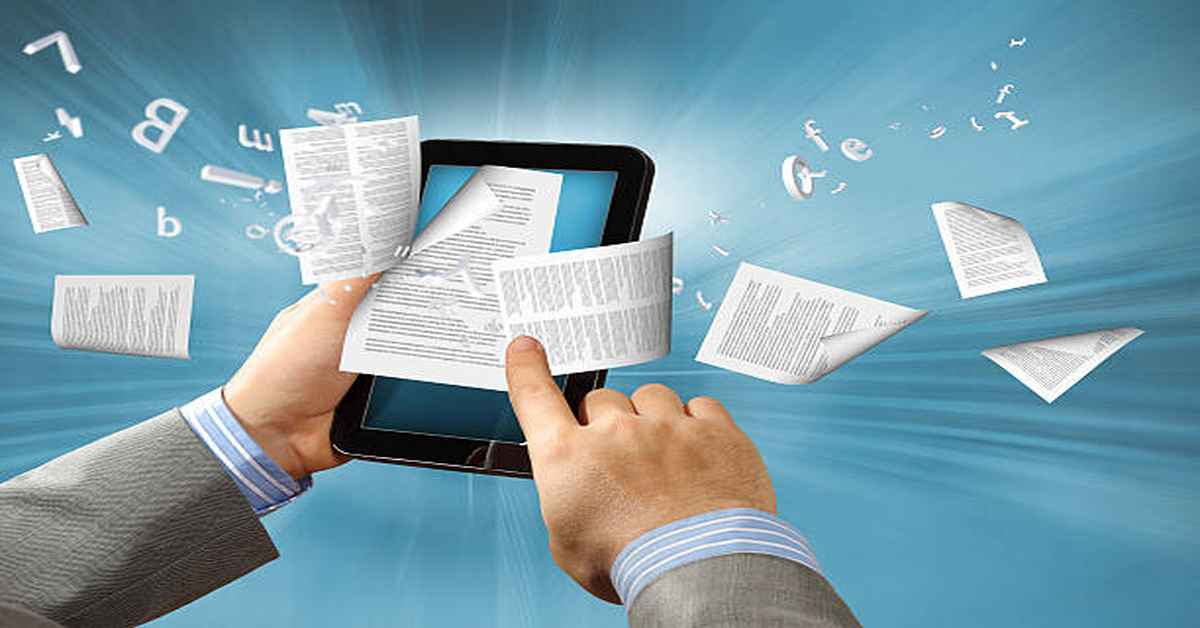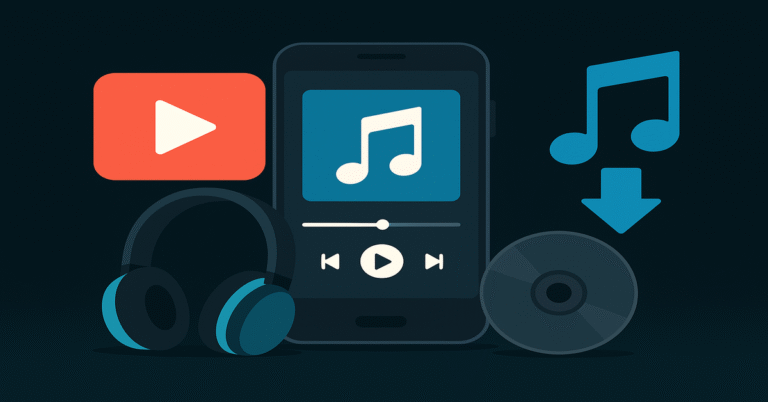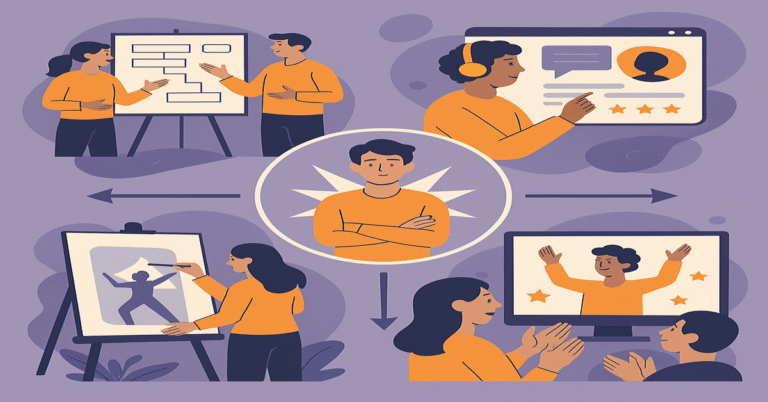
The world of books has changed drastically in the last two decades. Once, the only way to enjoy a novel, textbook, or manual was to visit a bookstore, library, or personal collection. Today, the internet has completely transformed reading habits. The rise of eBooks, digital libraries, and online repositories has made literature accessible to millions of people across the globe. Among the many names and websites people have encountered, one keyword that frequently sparks discussion is “OceanofPDF.”
This phrase has become symbolic of the vastness of the digital book universe—an “ocean” of PDFs that represent stories, knowledge, and learning resources. While some associate it with free access to books, others view it as a complex subject involving copyright, digital ethics, and the future of publishing.
In this article, we’ll dive deeply into what OceanofPDF represents in the digital era. We will explore the opportunities and challenges of digital reading, why platforms with names like OceanofPDF have attracted millions of curious readers, and what this means for authors, publishers, and everyday readers. The goal is to provide a comprehensive, unique, and detailed discussion that balances enthusiasm for digital reading with awareness of responsibilities in a connected world.
The Rise of Digital Reading
Before we look at OceanofPDF itself, it’s important to understand the broader context: the rise of digital reading.
- Convenience: A PDF book can be stored on a phone, tablet, or computer, accessible at any time without carrying physical weight.
- Affordability: eBooks are often cheaper than printed versions, lowering barriers for readers.
- Global Reach: Someone in a small town can instantly access books that may never be available locally in physical stores.
- Searchability: PDFs and eBooks allow for quick keyword searches, making study and research faster.
This rapid evolution has created new opportunities for readers but also raised challenges about how books are distributed, who profits from them, and how authors are recognized.
OceanofPDF: What It Represents
The term “OceanofPDF” represents more than just a website; it is a metaphor for the abundance of digital literature available online. Imagine a boundless ocean filled with every possible story, subject, and resource. The very name suggests vastness, accessibility, and variety.
For beginners or casual readers, it may sound like a treasure chest—an endless library at your fingertips. For serious thinkers, it sparks questions about ownership, legality, and the responsibility of readers in a digital world.
OceanofPDF has, in many ways, come to symbolize the dual nature of digital culture: abundance on one side and ethical dilemmas on the other.
Why Readers Are Drawn to Platforms Like OceanofPDF
The appeal of a “digital ocean of books” is undeniable. Several factors make it attractive to millions of readers:
| Attraction | Explanation |
|---|---|
| Accessibility | Books that are difficult to find in stores or libraries can often be found online. |
| Affordability | Many readers are drawn by free or low-cost access to digital books. |
| Variety | The range covers fiction, non-fiction, textbooks, self-help, and more. |
| Convenience | PDFs can be downloaded instantly without waiting for shipping. |
| Curiosity | The name itself—OceanofPDF—suggests unlimited discovery. |
The Ethics of Digital Reading
One of the most important aspects to discuss when looking at OceanofPDF is the question of ethics and legality.
- Authors’ Rights: Writers invest significant time and energy in creating books. If their work is distributed freely without permission, they may lose income and recognition.
- Publishers’ Investment: Publishing involves editing, design, and distribution costs. Unauthorized distribution disrupts this system.
- Reader Responsibility: Readers must balance the desire for access with respect for the people who create the works.
This ethical balance is crucial for the future of literature. While access is important, respect for intellectual property ensures that creators continue producing valuable content.
The Positive Side: Encouraging a Culture of Reading
Despite concerns, one cannot ignore that platforms symbolized by OceanofPDF have increased global reading culture. Many people in underdeveloped regions or those without financial means have discovered the joy of books because digital copies were accessible. In some ways, it has democratized reading, turning literature into a global public good rather than a privilege limited by geography or wealth.
This democratization highlights a deeper truth: people want to read. The challenge for the future is how to satisfy this demand in fair, sustainable, and innovative ways.
Legal Alternatives to Platforms Like OceanofPDF
For readers who want both access and responsibility, there are many legal digital platforms that balance affordability with respect for authors.
| Legal Alternative | Key Features |
|---|---|
| Project Gutenberg | Free public domain books, excellent for classics. |
| Google Books | Extensive previews, purchase options, and library integration. |
| Amazon Kindle | Large collection, often affordable, with Kindle Unlimited subscription options. |
| Libby / OverDrive | Allows borrowing eBooks from local libraries digitally. |
| Scribd | Subscription-based, offering books, audiobooks, and documents legally. |
These options demonstrate that the “ocean of reading” can still exist without undermining the creative ecosystem.
The Future of Digital Reading and “Oceans” of Content
The concept behind OceanofPDF will not disappear. Instead, it points toward a future where vast libraries of knowledge are increasingly available. The main question is how this access will be structured. Some likely developments include:
- More Subscription Models: Just as Netflix transformed movies, subscription services will dominate digital books.
- Global Digital Libraries: Initiatives by governments and NGOs may create universal libraries for education.
- Enhanced Formats: PDFs may evolve into more interactive, multimedia-rich eBooks.
- Author-Centered Solutions: Writers may distribute their books directly to readers using creative licensing systems.
OceanofPDF is a reminder that readers crave abundance. The future will likely be a blend of openness and structure, where innovation balances creativity with protection.
OceanofPDF as a Symbol of Modern Learning
Beyond books, the name itself carries symbolic weight. “Ocean” represents depth, variety, and discovery. “PDF” stands for digital knowledge. Together, the phrase highlights how humanity now navigates the seas of knowledge differently than before. Instead of traveling across continents for learning, students and readers dive into the digital ocean from their homes.
This symbolic meaning reminds us that we live in a historical moment where knowledge is no longer scarce—it is abundant. The challenge lies in learning how to swim responsibly in this ocean.
Practical Tips for Beginners Exploring Digital Books
For readers curious about exploring digital literature, here are some beginner-friendly tips:
- Start with Legal Free Platforms: Use Project Gutenberg or library apps to build habits.
- Invest in a Reading Device: Tablets or e-readers reduce eye strain compared to regular phones.
- Organize Your Collection: Use folders or apps to keep digital books sorted.
- Balance Digital and Print: Sometimes a physical book provides deeper focus.
- Respect Intellectual Property: When you enjoy a book, consider supporting the author by purchasing a copy.
A Balanced Perspective: The Double-Edged Sword
OceanofPDF, as a concept, illustrates the double-edged sword of technology. On one edge, it represents liberation—knowledge for all, instant access, the removal of barriers. On the other, it raises ethical dilemmas about sustainability, fairness, and respect for creators.
This balance will continue to shape debates in education, publishing, and technology. Readers, writers, and institutions must work together to create solutions where access and ethics are not enemies but partners.
Conclusion
OceanofPDF is more than a keyword; it is a mirror of our digital age. It reflects the vast possibilities of technology to connect people with literature and knowledge, but it also forces us to confront questions about fairness, authorship, and responsibility. For readers, the lesson is to embrace the joy of access while also valuing the human effort behind every page. For publishers and authors, it’s an invitation to innovate with new models that satisfy the hunger for knowledge while rewarding creativity.
As we sail deeper into the digital century, the ocean of PDFs—both metaphorical and real—will only expand. The challenge is not whether we will swim in it, but how wisely we navigate its waters.
FAQs
1. What does OceanofPDF mean?
It symbolizes the vast availability of digital books, often in PDF form, and represents both opportunity and challenges in reading.
2. Is using platforms like OceanofPDF legal?
Many such platforms face copyright issues. It’s better to use legal alternatives like Project Gutenberg or library apps.
3. Why are readers attracted to these platforms?
Because they offer affordability, variety, and instant access to books, especially in areas with limited local resources.
4. What are legal alternatives to OceanofPDF?
Platforms like Google Books, Amazon Kindle, Scribd, and Libby provide vast legal collections for readers.
5. What lessons can readers learn from OceanofPDF?
That knowledge is abundant, but it must be accessed responsibly to support authors, publishers, and future creativity.






